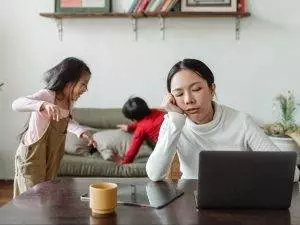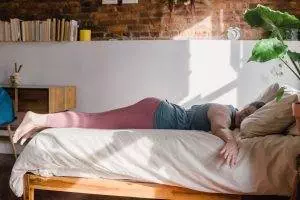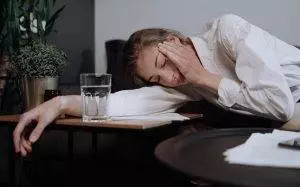-
 Art of Wellness Acupuncture & Traditional Chinese Medicine (TCM)11704 Wilshire Blvd, Suite 295, Los Angeles, CA, 90025
Art of Wellness Acupuncture & Traditional Chinese Medicine (TCM)11704 Wilshire Blvd, Suite 295, Los Angeles, CA, 90025
myartofwellness@gmail.com310-451-5522 Office Hours
MonClosedTue7:30 am --4 pmWed7:30 am --4 pmThu7:30 am -- 4 pmFri7:30 am -- 4 pmSat7:30 am -- 4 pmSunClosedOur office opens from Tuesdays to Saturdays 7:30 am to 4 pm, will be closed on Memorial day, Independent day, Labor day, Thanksgiving day, Christmas and New year.
-
Recent Posts
- How to Treat Rosacea With Acupuncture and TCM
- How to Treat Perioral Dermatitis With Acupuncture and TCM
- Lymphatic Drainage With Acupuncture and TCM
- How to Treat Turf Toe With Acupuncture
- How to Treat Nerve Pain With Acupuncture and TCM
- How to Treat Watery Eyes With Acupuncture and TCM
- How to Treat Ovarian Cysts With Acupuncture and TCM
- How to Treat Dystonia With Acupuncture and TCM
- Can Acupuncture Help Bad Breath?
- How to Treat Atopy with Acupuncture and TCM
- Plantar Fasciosis Treatment With Acupuncture and TCM
- How to Protect Yourself When Air Quality Is Poor
- How to Treat Spinal Headache With Acupuncture and TCM
- How to Treat Sarcoidosis With Acupuncture and TCM
- How to Treat Flu With Acupuncture and TCM
- Chinese New Year 2025 Year of the Snake
- Sign up to receive news and updates and get my free report:“The Top 10 Reasons to Try Acupuncture”

Herbs
How to Treat ALS With Acupuncture and TCM
By Qineng Tan, L.Ac., Ph.D. & Xiaomei Cai, L.Ac., Ph.D.

Muscle fatigue, muscle twitching, muscle cramps, slurred speech? These are some of the early signs of ALS, Amyotrophic lateral sclerosis, which is also commonly known as Lou Gehrig’s disease (or Lou Gherig’s disease). ALS is a rare progressive neurological disorder. Acupuncture and TCM can help to manage the symptoms of ALS and slow the progress of this degenerative motor neuron disease.
ALS is a neurological disease that affects the motor neurons (or nerve cells) in the brain and spinal cord that control voluntary movements. Over time, people with ALS develop muscular problems that make it hard for them to walk, talk, eat, drive, and perform all kinds of daily activities. As more neurons break down, the muscles can begin to waste away. ALS can also lead to speech problems and changes in personality. Some patients with ALS will develop respiratory problems that make it very difficult to breathe.
In the early stage of ALS, people may have muscle spasms, fatigue, and only some of the body is affected. As the disease progresses to the middle stage, they may begin to have more muscle twitches (fasciculations) or contractures, which is when the joints become painfully stiff and rigid. This can eventually lead to paralysis, and a person having to use a wheelchair.
Eventually, ALS can affect breathing and eating to the point that a person is not getting sufficient oxygen or nutrition, which can cause headaches and an inability to concentrate.
Unfortunately, ALS often leads to other serious illnesses that are fatal. People with ALS may develop severe respiratory problems or pneumonia. Some patients may have cardiac arrhythmias, or pulmonary embolism. Medical treatments for ALS can, in some cases, help slow down the degeneration of the nerve cells and prolong life.
Acupuncture and TCM offer an effective adjunct to standard treatment for ALS that may help to improve motor ability, speech, and breathing. Acupuncture has been used successfully to manage ALS and many other neurodegenerative diseases, including: essential tremor, Alzheimer’s disease, Parkinson’s disease, seizures, Bell’s palsy, multiple sclerosis (MS), and recovery from stroke.
What Causes ALS?
While only 5-10% of people with ALS seem to have inherited it, genetics are considered likely to be a factor. As with other conditions, like CF, one parent may not show any signs of the disease, but may have the genetic mutation that causes ALS in their DNA. Having a genetic mutation that affects the way a protein functions or doesn’t function may be what causes cell degeneration like that of ALS.
Medical science has not determined the exact cause of ALS, but it may also have to do with some environmental or behavioral factors. For example, because rates of ALS are higher amongst athletes and members of the military, it has been posited that there may be some correlation to high levels of exertion and the breakdown of motor neurons.
Top 10 Symptoms of ALS
Signs of ALS may be slow to develop, and are sometimes misinterpreted as symptoms of other neurological disorders, like MS. Both ALS and MS can start off with seemingly minor symptoms like muscle twitching, or weakness in the legs. But over time, ALS will begin affect speech and swallowing, while MS is more likely to cause numbness or tingling in the hands and feet, and vision problems. MS symptoms may come and go, while ALS is usually marked by a steady decline as the disease progresses. Muscular dystrophy can also have similar symptoms.
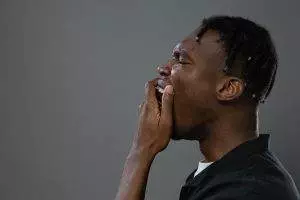
The most common symptoms of Lou Gehrig’s disease/ALS include:
- Having trouble grasping items or lifting things
- Muscle weakness, muscle cramps, muscle twitches, charley horse
- Arms and legs become fatigued easily, trouble walking, trip easily
- Voice sounds higher, more nasal when speaking
- Slurred speech
- Difficulty chewing and swallowing, choking on liquids
- Eyes or mouth don’t close all the way
- Bouts of uncontrolled laughing, crying, or yawning
- Easily frustrated or confused
- Feelings of anxiety or suspicion
As ALS progresses, secondary problems like malnutrition due to difficulty eating, trouble breathing, or emotional symptoms may become more prominent. ALS may also lead to problems with incontinence and control of the bowels.
Diagnosis and Treatment for ALS
ALS is not considered an autoimmune disease, although recent research suggests that some people with ALS are more prone to developing autoimmune disorders because they have a particular genetic mutation that affects the production of virus-sensing immune cells. As with autoimmune disorders like lupus, Addison’s disease, fibromyalgia, ME/CFS (chronic fatigue syndrome, Myasthenia Gravis, and rheumatoid arthritis (RA), it can be difficult to get a diagnosis for ALS.
If ALS is suspected, a doctor will first do an examination looking at motor and nerve function. Next, they will do an EMG, a test to check the electrical signals between the nervous system and the muscles. An MRI may show whether there is damage to the spinal cord. Blood tests can rule out other diseases that cause similar symptoms, such as muscular dystrophy, or myasthenia gravis.
The drug most often used to treat ALS is riluzole, which acts on the brain chemicals that affect nervous system signals. Specifically, riluzole prevents excess production of glutamate, which seems to occur in some people with ALS, and is believed to contribute to dysfunction in the brain and spinal cord. Riluzole seems to have some protective capabilities, staving off the progression of ALS symptoms and further degeneration of nerve cells. Riluzole is not very effective for everyone with ALS, though, and it can cause side effects like dizziness and gastrointestinal problems.
Acupuncture and TCM offer a safe alternative or integrative treatment plan for ALS which can help to reduce symptoms like muscle twitches, muscle weakness, and trouble swallowing. TCM treatments can also reduce the side effects of medications for ALS like riluzole, alleviating digestive symptoms and dizziness. Acupuncture works holistically to address the stress and emotional impact of having a chronic illness, helping to relieve depression and anxiety.
Acupuncture for ALS
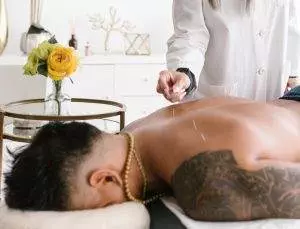
One of the foundational concepts of TCM is the idea that both blood and Qi (life force energy) flow through the body along channels. In Western medicine, these channels are recognized as the nerves of the nervous system, and the blood vessels of the cardiovascular system. In the TCM system of medicine, blood flow and energy flow can be stimulated, and fine-tuned, by acupuncture treatment.
Acupuncture has been shown to help get the electrical impulses that carry messages from the brain to the spinal cord, the nerves, and the muscles working again when they are dysfunctioning. In this way, TCM and acupuncture are understood to be helpful for the treatment of many neurological disorders and progressive degenerative diseases. Neurological problems can be caused by blockage due to varying factors, but the framework of TCM allows us to treat all kinds of blockages with acupuncture.
With acupuncture and herbs, we can also work against muscle atrophy by nourishing the spleen. TCM works to help patients with ALS on many levels.
One case study reported a reduction in ALS symptoms like spasms and muscle cramps, fatigue, low back pain, and dry eyes.
Another case study of a patient with ALS showed distinct improvements in speech, mobility, and breathing ability.
A case study of a patient who, after being treated with riluzole for a period of time, began taking Chinese herbs, showed that she was able to manage her ALS, with less muscle twitching and better ability to tolerate swallowing without choking, over a 12 year period.
Studies have also shown that acupuncture treatment for ALS can help reduce inflammation in the respiratory tract and help improve breathing capability.
Acupuncture Near Me for ALS/Lou Gehrig’s Disease, Los Angeles Area
ALS is a serious chronic illness that can quickly rob people of their mobility, self-reliance, and quality of life. While there is no cure for ALS, it is possible to slow down the progression of the disease and manage symptoms. The doctors at Art of Wellness have over 35 years of experience helping patients manage degenerative neurological conditions so they can live their best possible life.
*This article is for education from the perspective of Traditional Chinese Medicine only. The education provided by this article is not approved by FDA to diagnose, prevent, treat and cure human diseases. It should not stop you from consulting with your physician for your medical conditions. Traditional Chinese Medicine is based on Qi, which is an invisible force that usually cannot be observed by modern science. Because science focuses on testing ideas about the natural world with evidence obtained through observation, these aspects of acupuncture can’t be studied by science. Therefore acupuncture and Chinese herbs are often not supported by double-blind, randomized trials, and they are considered alternative medicine therapies in the United States.
How to Treat Addiction With Acupuncture and TCM
By Qineng Tan, L.Ac, Ph.D. & Xiaomei Cai, L.Ac., Ph.D.

Are you, or is someone you love, struggling with alcohol addiction or some other substance abuse problem? Alcoholism, drug addiction, and other issues like porn addiction problems or food addiction can be helped with TCM treatment. Acupuncture for addiction can help people overcome the physical symptoms of alcohol withdrawal, and help them deal with the mental and emotional aspects of substance abuse recovery.
Drug use, drinking, and smoking are behaviors that are widely practiced and deeply ingrained in our modern society. If we consider tobacco smoking and alcohol consumption in addition to “harder” drugs, then over 60% of the population uses some type of addictive substance on a regular basis.
Substance use disorders (SUDs) are a major health concern worldwide. It is estimated that over 20 million Americans are currently suffering from some type of addiction to drugs or alcohol. While addiction can happen to people of all ages, young people are especially at risk for substance abuse. When teens and young adults start binge drinking or abusing drugs, it can have a serious effect on their brain development and increase their chances of developing a substance abuse problem.
More recently, the surge of opioid use has dramatically increased the number of people who are dangerously dependent on prescription painkillers or deliberately misusing opioid medications like fentanyl or Oxycontin. People can become addicted to opioid medications in a short period of time. Accidental overdose is one of the leading causes of death in the U.S., which has contributed to the recent decline in average life expectancy.
Even moderate drinking and use of recreational drugs can affect a person’s overall health, sleep habits, and fertility. There are many benefits to reducing your alcohol consumption, or choosing to go through an alcohol detox or a designated period of sobriety, like “Sober October” or “Dry January.” A TCM herbal detox with acupuncture treatment can help improve your vitality and get rid of nagging health issues.
If you know you have a serious problem with addictive behaviors, though, you will probably need some sort of treatment and support system to help you get sober and recover physically and mentally from substance use disorder.
What Causes Addiction?
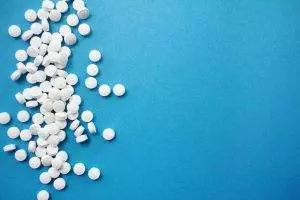
When we talk about addiction, we are usually referring to the relationship of the body and mind to psychoactive substances such as: alcohol, nicotine, marijuana, heroin, cocaine, amphetamines, methamphetamine, hallucinogens, etc. The chemical composition of these substances causes them to have a profound effect on the brain chemistry of human beings.
Unfortunately, many drugs that are prescribed by doctors to help relieve pain and other symptoms of illness are habit-forming, too. When people try to stop taking the medication they’ve been using to help with post-surgical pain, for example, or to help them sleep, or to relieve situational depression and anxiety, they find they can’t just “quit.”
Even “milder” substances like caffeine and sugar, which many people consider to be a regular part of their daily diet, can be abused to the point that they become detrimental to your health. And, of course, we all know how hard it is for people to quit smoking. Nicotine is one of the most addictive substances out there.
Most of these drugs affect the way the brain produces dopamine and other neurochemicals. When you stop drinking or using the drug, the brain is not ready to go back to its old ways of creating and releasing dopamine. There is a period of adjustment, during which symptoms of withdrawal can make a person very uncomfortable, or even violently sick.
Certain behaviors, like scrolling through social media websites on your phone, or looking at pornography, or even engaging in sexual activity, can also be addictive because of the way they impact dopamine production and other brain activity.
There has been a lot of shame and stigma attached to alcoholism and addiction. Sometimes, people live in denial of the fact that they are too heavily reliant on drinking or using drugs to help them cope with stress. Alcohol abuse or drug abuse are still considered by some people to be personal problems, having to do with a lack of willpower or gratitude.
We now understand that addiction is a disease, and that it can be difficult and actually dangerous for people to try to stop using some drugs without some form of treatment. Doctors and mental health professionals are trained to help people safely recover from substance abuse, and treatments exist to provide relief from drug withdrawal symptoms. In addition to the 12 step program Alcoholics Anonymous, which provides emotional support through group interactions, many other clinics and rehab centers provide care for those trying to stop using drugs and alcohol.

Still, most people find that recovering from addiction is extremely difficult, probably the hardest thing they have ever tried to do. Many people, no matter what kind of treatment they receive, or how many times they go through a 12 step program, still relapse. First a person needs to decide that they are ready to commit to recovery. Then, finding the right support is crucial to success.
TCM methods of acupuncture and herbs offer an alternative or adjunctive treatment for addiction. Acupuncture treatment has been shown to help patients suffering from alcoholism and depression, reducing cravings and symptoms of withdrawal and improving mental health.
Acupuncture can help people overcome substance abuse, addressing both the physical effects of drug use with an effective alcohol detox or drug detox, and the emotional problems most people face when they begin recovery treatment.
Top 10 Symptoms of Withdrawal from Alcohol Dependence and Drug Abuse
Withdrawal is the body’s reaction when a person stops using drugs or alcohol after having been ingesting them regularly for a significant period of time. When the body and brain have become addicted to a substance, the physical and emotional need for that substance can cause a severe reaction when a person stops abruptly, making it very difficult for a person to resist using again. Withdrawal symptoms can vary, depending on what type of substance you’ve been using, and how long you’ve been using it.
Symptoms of withdrawal include:
- Tremor, hands shaking, body shaking, seizures
- Anxiety, depression, agitation, feeling jumpy, irritability, delirium, hallucinations
- Watery eyes, tearing, runny nose
- Hot flashes, chills, hot flushes, hot and cold, sweating, clammy skin
- Nausea, vomiting, diarrhea
- Muscle cramps, muscle aches, muscle pain, muscle tension
- Dehydration
- High blood pressure, fast heartbeat, irregular heartbeat, palpitations
- Anxiety, depression, overwhelming negative emotions
- Insomnia, trouble sleeping, restlessness
Other signs of withdrawal can include: trouble concentrating, memory loss, foggy headedness, pupils dilated, loss of appetite.
Some medical detox programs are designed to help people gradually taper their use of drugs like amphetamines or sleep medications so as to minimize withdrawal symptoms. Treatment centers, such as a methadone clinic, may use certain approved medications to help relieve cravings when people are coming off of heroin or prescription pain medications.
Acupuncture, a TCM detox program, and other TCM treatments can serve as an alternative or adjunct treatment to help alleviate withdrawal and help people survive through the toughest parts of recovery.
Top 5 Ways Acupuncture Can Help Addiction

The relationship between Chinese medicine and alcohol goes back many centuries. As early as 1600 B.C., we have records of alcohol being used in medicinal preparations and for its anesthetic properties. Problems with overuse of alcohol, however, are also a longstanding part of Chinese culture, so TCM has developed treatments to help people reduce their consumption of alcohol.
According to TCM philosophy, too much alcohol creates excessive heat in the body, and disturbs the balance of Yin and Yang. In conventional medicine, the focus tends to be on how alcohol abuse impacts the liver. In TCM, we see that binge drinking also taxes the stomach and spleen, and encourages dampness to take hold. Thus, acupuncture treatment for alcohol addiction will often focus on clearing heat and dampness from the organ systems, while strengthening the stomach and spleen.
TCM takes a holistic approach to treating Substance use disorders, meaning we focus not only on the physical symptoms of withdrawal, but also on the emotional, mental, and spiritual problems associated with addiction.
Most people become dependent on drugs or alcohol because they are already experiencing some form of emotional struggle or mental health issue. When the substance is taken away, those feelings come up to the surface again, demanding attention. For many people, the anxiety and depression they face when they quit drinking or using drugs is overwhelming.
Some people may avoid 12 step programs, an AA meeting, alcohol rehab, drug addiction centers for substance use disorders, or even one-on-one talk therapy because they are not ready to talk about the trauma that triggered their anxiety or depression. Acupuncture treatment can be very helpful for anxiety and depression, without having to delve into these conversations.
TCM treatment for addiction works on multiple levels:
- Detox – TCM has a history going back for many centuries of actively seeking to remove toxic substances from the body to improve both physical and mental health. The practice of using Chinese herbs used in combination has been developed to be highly effective as a detox from all kinds of drugs. A TCM detox treatment program uses acupuncture treatment as well as herbs taken internally (as a tea or capsule) and used externally (detox patches) to draw toxins from the body, providing a deep cleansing for the liver and other organ systems.
- Reduces cravings – whether the problem is nicotine, alcohol, opiates, food, or some behavior like engaging with porn, the use of auricular acupuncture and applying pressure to acupressure points on the head and ears for cravings can be very effective.
- Withdrawal Symptoms – Acupuncture has been shown to help people with symptoms of opioid withdrawal, heroin withdrawal, and prevent relapses.
- Mental Health – people who were treated with acupuncture for addiction reported that it helped them feel more confidence in their ability to quit. Acupuncture helps relieve anxiety and the negative effects of stress.
- Sleep aid – many people start using drugs in the first place because they have trouble sleeping. When people quit drinking and using drugs, they can suffer from insomnia and restlessness. Acupuncture is an excellent modality for helping people to relax and experience deeper, higher quality sleep.
Acupuncture has been shown to have an effect on neurotransmitters like dopamine and serotonin, which are involved in the brain processes that make certain substances so addictive.
Several types of Chinese medicines based on herbal formulation have been tested and approved for treatment of opiate addiction in China.
Studies have shown that electro-acupuncture, and auricular acupuncture can reduce cravings, and alleviate anxiety related to drinking cessation.
Acupuncture for Addiction Treatment Near Me in Los Angeles Area
Addiction can be devastating for individuals and their loved ones, but substance abuse and other kinds of addictions can be overcome with time, dedication, and the right treatment plan. At Art of Wellness, we are ready to become part of your support team, providing consistently excellent health care through acupuncture and herbs, as well as being there for you when you need emotional support. We want our patients to think of our clinic as a second home, where they can find peace and strength to help them overcome their substance use disorder.
*This article is for education from the perspective of Traditional Chinese Medicine only. The education provided by this article is not approved by FDA to diagnose, prevent, treat and cure human diseases. It should not stop you from consulting with your physician for your medical conditions. Traditional Chinese Medicine is based on Qi, which is an invisible force that usually cannot be observed by modern science. Because science focuses on testing ideas about the natural world with evidence obtained through observation, these aspects of acupuncture can’t be studied by science. Therefore acupuncture and Chinese herbs are often not supported by double-blind, randomized trials, and they are considered alternative medicine therapies in the United States.
How to Treat Essential Tremor With Acupuncture and TCM
By Qineng Tan, L.Ac, Ph.D. & Xiaomei Cai, L.Ac., Ph.D.
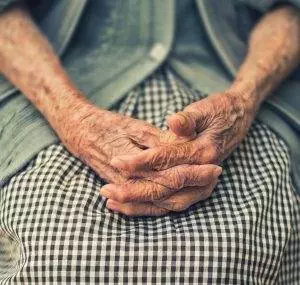
Shaking hands, body shaking for no reason, head shaking, feel wobbly when you’re walking, maybe your voice quivers when you speak? These could be signs of Essential Tremor (ET). Essential tremor is a neurological condition, often mistaken for Parkinson’s disease, which causes rhythmic shaking of parts of the body, especially the hands. Acupuncture and TCM are an effective way to treat symptoms of essential tremor.
Essential Tremor (ET), also called “kinetic tremor” or “benign essential tremor,” is a chronic nervous system disorder that causes hand tremors, trembling hands, head shaking, body tremors in the arms or legs, and can also affect the voice. The hand shaking most often happens when you try to perform some simple, yet specific task that requires coordinated movements or using tools, such as shaving, writing, or pouring liquid into a glass.
Essential tremor is the most common type of movement disorder, affecting about 4% of older adults, although it can happen at any age. The causes and progression of ET are not fully understood by medical science.
Tremors are categorized into two main types of tremors: resting or active. A resting tremor is when the body shakes even at rest. Active tremors are when there is shaking when a person is attempting to make voluntary movements. Essential tremor is a type of active tremor.
“Postural tremor” refers to an active tremor that occurs when a person is trying to maintain a position, like standing with the arms outstretched, and cannot do it without shaking. An “internal tremor” is a person’s feeling that a quivering or shaking sensation is taking place inside their body, that cannot be seen by others.
Essential tremor is often misdiagnosed as Parkinson’s disease, but, in fact, essential tremor is much more common than Parkinson’s (20 times more common). Like Parkinson’s, essential tremor causes hand shaking, but ET is different in that symptoms usually occur when you’re actively trying to do something, whereas Parkinson’s tremor occurs even when your limbs are at rest. Parkinson’s also typically involves non-motor symptoms as well as motor symptoms.
Other conditions can also cause hand tremors. Vascular parkinsonism, a neurological disorder that is the result of small strokes, causes blockage of blood flow in the brain. Both Parkinson’s and vascular parkinsonism can cause a distinct type of tremor that involves the thumb and fingers brushing together slowly, sometimes called a “pill-rolling tremor.” Asterixis is another kind of motor control disorder that causes muscles to jerk, resulting in a characteristic hand-flapping gesture, sometimes referred to as “liver flap.”
There are many other conditions that can also cause tremors, including: hyperthyroidism, multiple sclerosis (MS), stroke, liver or kidney disease, and alcohol addiction. Anxiety or panic attacks can also cause a temporary tremor or shakiness.
Essential tremor seems to run in families sometimes, but many people begin to experience tremors for no apparent reason. It is theorized that ET may be caused by something genetic, or it may be caused by neurodegeneration–the gradual degradation and death of cells in the brain.
Acupuncture, combined with other TCM modalities such as moxibustion and herbs, is a good method for reducing hand tremors and other symptoms of essential tremor, as it has been demonstrated to have positive effects on the generation of cells in the brain and nervous system, as well as reducing stress and anxiety.
Top 5 Essential Tremor Symptoms
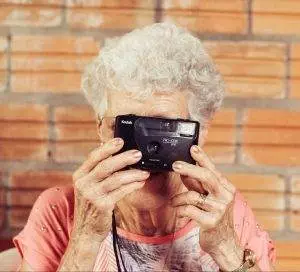
Very mild symptoms of essential tremor, such as having trouble threading a needle, often begin to show up when a person is in their 40s. Then, as time goes on, the symptoms of ET become more obvious:
- Tremor, especially in hands, that is most noticeable when you’re trying to do something
- Head nodding that you can’t control
- Shaking on one side of the body more than the other
- Voice quivers or voice is shaky when you speak
- Tremor gets worse over the years
Some medications (amphetamines, corticosteroids, or asthma medications) or stimulants like caffeine may make the tremors more noticeable. Some people find that the tremor lessens when they drink a moderate amount of wine or other alcohol. Stress, strong emotions, too much exertion, low blood sugar, or being dehydrated can make the tremor more pronounced.
Essential Tremor Treatment
There is no specific test that shows whether a person has essential tremor. Diagnosis is based on observation of symptoms, and the use of testing to rule out other disorders, such as thyroid disease or Parkinson’s.
Medications are used to treat tremors with varying levels of success. Propranolol and Atenolol are beta-blockers that can be helpful for some people with ET. Primidone or Topamax are anti-seizure (anti-epileptic) drugs that can also be prescribed to help relieve shaking. In many cases, these medications are not very helpful for relieving the tremors. Doctors may try anti-anxiety medications like Valium, Ativan, or Klonopin. Botox injections have also been tried as a medical treatment for essential tremor.
In some cases surgery to remove parts of the thalamus has helped stop severe tremors, but there is a high risk with this type of brain surgery. Nowadays, when drugs do not seem to provide relief from tremors, people may be referred for a thalamic deep brain stimulation therapy, in which electrodes send an electrical impulse to the brain to interrupt the faulty signals leading to involuntary shaking.
Acupuncture treatment is another way to stimulate brain activity, having a positive effect on neurotransmitters in the brain and reestablishing connections throughout the nervous system.
Can Acupuncture Help Essential Tremor?

According to TCM theory, the symptom of hand tremors generally originates from the liver and kidney systems. Liver blood deficiency and kidney deficiency are closely related, and can lead to rising Liver Yang, and Liver Wind. It is the pathogenic factor of wind that causes the hand shaking. We use acupuncture treatment and herbs to nourish the liver and kidney so that wind is subdued and yin and yang energies are balanced.
One study compared groups of people with ET who were treated with medication (Propranolol) versus patients treated with both acupuncture and medication. The results showed better results for the patients who received the combined therapies.
A hospital study in China showed that a combination of acupuncture treatment and herbal formulation had an over 80% efficacy rate for patients with benign essential tremor.
A recorded case study of a woman treated with acupuncture for tremor showed that she was better able to write and hold objects, and that the improvements were maintained even a year after she had completed acupuncture treatment.
Best Exercise for Hand Tremors
Regular exercise is important for everyone, especially as we age, in order to keep our physical and mental faculties strong and agile. Exercises that can be beneficial for people with essential tremor include:
- Regular cardiovascular exercise and light strength training
- Tai Qi
- Yoga
- Meditation
- Puzzles, math games, brain teasers, word searches, etc.
Acupuncture Near Me for Essential Tremor in West Los Angeles, Brentwood area
If you’ve started to notice your hands shaking, voice trembling, or that you’re feeling unsteady on your feet, don’t wait until the situation gets worse. Acupuncture treatment can help reduce the frequency and severity of hand tremors, and prevent essential tremor from progressing. The TCM doctors at Art of Wellness have over 35 years of experience treating all kinds of neurological disorders and helping people maintain their quality of life as they get older.
*This article is for education from the perspective of Traditional Chinese Medicine only. The education provided by this article is not approved by FDA to diagnose, prevent, treat and cure human diseases. It should not stop you from consulting with your physician for your medical conditions. Traditional Chinese Medicine is based on Qi, which is an invisible force that usually cannot be observed by modern science. Because science focuses on testing ideas about the natural world with evidence obtained through observation, these aspects of acupuncture can’t be studied by science. Therefore acupuncture and Chinese herbs are often not supported by double-blind, randomized trials, and they are considered alternative medicine therapies in the United States.
How to Treat HIV/AIDS With Acupuncture and TCM
By Qineng Tan, L.Ac.,Ph.D. & Xiaomei Cai, L.Ac., Ph.D.

What does it mean to be HIV positive? HIV is a viral infection that harms the immune system over time and, if untreated, can eventually lead to AIDS, a syndrome that causes people to become weaker and get serious infections easily. There is no cure for HIV/AIDS, but there are various therapies that can slow the progression of HIV. Acupuncture and TCM herbs can help to improve immune function and relieve symptoms related to the side effects of other HIV/AIDS drug therapies.
Human immunodeficiency virus (HIV) is an infection that affects the immune system by destroying the white blood cells (CD4 and T-cells) that are such an important part of the body’s immune response, causing people with HIV to be much more prone to all kinds of infections. Acquired immune deficiency syndrome (AIDS) is the late stage of HIV, in which the CD4 cells have reached a critical low point and other infections are taking hold in the body.
Over a million people in the U.S. are currently living with HIV. Many more people may have HIV and not know it. People can have HIV for several years without feeling any symptoms, while the illness is in its early stages.
HIV is a progressive illness, which affects the functioning of the immune system over a long period of time.
4 Stages of HIV Infection:
- Infection – when a person contracts the HIV virus, it spreads quickly in the body, often causing flu-like symptoms: fever, headache, rash, sore throat. If you have these types of symptoms, and you think you may have had contact with an infected person or a needle recently, it is very important to go get tested for HIV. Early testing allows people to get treatment as soon as possible, and to know if they are contagious and can spread the virus to others.
- Asymptomatic – the HIV virus remains in the body, causing damage to cells and weakening the immune system, while the person may have no symptoms of HIV/AIDS. This latent stage of HIV can last for quite a long time, averaging 8-10 years. This is why many people do not realize they have HIV until they are tested.
- Symptomatic – Eventually, a person with HIV will begin to feel the effects: fatigue, mouth sores from oral candidiasis, diarrhea, and weight loss. Other infectious diseases can easily get into the body because of the weakened immune system; these are called opportunistic infections. Common co-infections associated with HIV include: tuberculosis (TB), cryptococcal meningitis, toxoplasmosis, hepatitis, and pneumonia.
- HIV progression to AIDS – In some cases, people with HIV who receive treatment to help boost their immunity are able to stave off progression into the AIDS stage of illness. However, if the CD4 cell count drops and other infections take hold, a person is considered to have progressed into the AIDS stage.
Being diagnosed with HIV can be emotionally devastating. Knowing you have a serious illness with no cure is naturally going to cause a lot of stress, feelings of anxiety, and even depression. With good health care, it is possible these days to live a long life with HIV. Putting together a team of caring health care professionals who can provide integrative care for HIV/AIDS will help you maintain the best physical and mental health possible. TCM provides holistic care for patients living with HIV or AIDS that works on all levels: keeping your mental outlook positive, helping you sleep better, boosting immune function, and relieving symptoms that are due to side effects of medical treatment, or caused by concurrent infections.
How Do You Get HIV/AIDS?
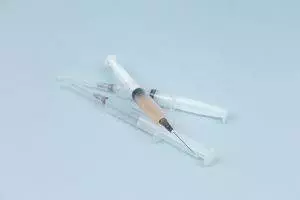
The HIV virus is carried through certain bodily fluids: blood, semen, vaginal secretions, and breastmilk. In order for HIV to be transmitted from one person to another, one of these types of body fluids must have the infection present in it, and must get into the other person’s bloodstream through broken skin or mucous membrane.
HIV is not transmitted through saliva, sweat, urine, or feces, and is not carried in the air in droplets. You cannot get HIV through water or air, or by touching surfaces. The way that HIV is most often passed from person to person is through sexual contact. Other ways you can get HIV are by sharing needles while using drugs, getting a tattoo with a needle that wasn’t properly sanitized, or a blood transfusion. (As a reminder: we only use single-use, disposable, sterile needles for acupuncture treatment.) A woman could also pass HIV to her baby when breastfeeding. Using condoms during sex and only using sterilized needles are the primary ways to prevent HIV infection.
Top 10 Symptoms of HIV
Most people with HIV will go through a long phase of having no noticeable symptoms. Eventually, after the virus has spread slowly, people with HIV will begin to show symptoms such as:
- Fatigue, feeling tired all the time
- Fever, or feeling hot even if you don’t show a fever
- Diarrhea
- Insomnia, night sweats
- Weakness, dizziness
- Weight loss, wasting, loss of appetite
- Nausea
- Skin rash, or purple spots on skin, bruise easily
- Shortness of breath
- Swollen lymph glands
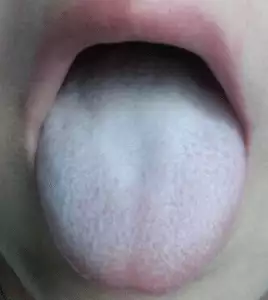
Oral candidiasis, also known as thrush or oral candida, is also common among people living with HIV because the suppressed immune system makes it easier for the fungal infection to take hold. Burning sensation or pain in the mouth cavity and redness with white patches are the signs of oral candidiasis. Long-term use of antifungal medication (Fluconazole) to control thrush can cause side effects and eventually cease to be effective as the body develops a resistance to it.
HIV can also lead to neurological problems, like peripheral neuropathy, in which the signals between the brain and the rest of the body are compromised, causing symptoms like: muscle twitching, loss of balance and coordination, tingling or burning sensations, or numbness.
Medical Treatment for HIV and AIDS
Advances have been made in medical treatment for HIV/AIDS. Different combinations of medications that block the replication of the virus can help to slow the progression of HIV in the body. This type of drug therapy for HIV used to be called HAART, short for “highly active antiretroviral therapy.” Now, it is usually referred to as ART or cART, which stands for “combination antiretroviral therapy.” This form of treatment for HIV can increase chances of survival and quality of life, but is not well-tolerated by all patients. Lifelong use of the medication is required, which, for some, makes HIV a manageable chronic illness. For other patients, the side effects of cART may not be tolerable. Side effects of HIV medications can involve gastric problems, headaches, fatigue, and peripheral neuropathy. Medications can cause liver dysfunction, damage to the liver, and bone marrow suppression, meaning fewer blood cells are being made by the bone marrow.
While a person is still in the asymptomatic phase of HIV, doctors may not begin using antiretroviral therapy because of concerns related to side effects and resistance. However, taking some steps to optimize immune function can potentially help stave off progression into symptomatic and AIDS stages. TCM herbs and acupuncture can be helpful during this phase to help strengthen the immune system and hopefully slow down the progression of disease.
Acupuncture and herbal treatment with TCM may also be used as an adjunct therapy during later phases in order to help people tolerate cART better by reducing nausea and other gastrointestinal effects of the medication and helping to improve appetite. For patients with HIV, TCM treatment is designed to help strengthen the body’s immune defenses in the hopes of preventing advancement to the AIDS stage of disease. For patients in the AIDS stage, TCM treatment focuses on helping to alleviate symptoms of opportunistic infections and to mitigate the side effects of other medications.
TCM for HIV/AIDS

What is HIV from the TCM perspective? TCM puts a lot of emphasis on the prevention of disease by maintaining a balance of yin and yang energies in order to protect the body’s Vital Qi. It is Vital Qi that keeps invasive illnesses like viruses from getting into the body and taking hold there. There are no TCM historical records that point specifically to AIDS, but we do have centuries of practice treating various kinds of invasive viral infections. Modern TCM practitioners apply this knowledge when treating patients with HIV/AIDS.
Syndrome factors of HIV according to TCM:
- Qi deficiency
- Blood deficiency
- Yin deficiency
- Yang deficiency
- Phlegm
- Dampness
- Qi stagnation
- Essence deficiency
An invasion of heat causes the early symptoms of HIV infection: fever, itching (pruritis), and fatigue. Then, later on, as the virus moves deeper into the body, toxic heat causes problems with the organ systems of the stomach, spleen, kidneys, and liver that lead to the weight loss and poor appetite indicative of later stages of HIV and AIDS. Herbal formulations can help relieve the diarrhea that is often reported by patients with AIDS/HIV. Herbs that work to help strengthen the spleen can improve fatigue, shortness of breath, nausea, diarrhea, and skin rash.
Strengthening deficient Qi is central to TCM treatment for HIV and can help to improve immune responses in the body. Chinese herbal formulations can aid in reducing the spread of the infection with results similar to those of cART medicines, while simultaneously having a positive effect on the immune system overall. Herbs do not come with the negative side effects associated with drug therapy for HIV/AIDS.
In addition to the other immune-related problems, people living with HIV/AIDS are also likely to have systemic inflammation. HIV can cause damage and inflammation in the gut, and cause blood clotting, making people more susceptible to cardiovascular problems and heart disease. Acupuncture has been shown to help reduce systemic inflammation in HIV patients. Some studies have suggested that herbs may help AIDS patients to live longer, and improve chances of long-term survival. Treatment of HIV with acupuncture and herbs can help to relieve symptoms and reduce the side effects of other treatments.
Acupuncture Near Me for HIV/AIDS in the Los Angeles Area
If you or someone you love is living with HIV, getting the best care possible as soon as possible is vital for improving the long-term outcome. Putting together a program of complementary health care for HIV/AIDS can help offer the best chances for survival, quality of life, and peace of mind.
*This article is for education from the perspective of Traditional Chinese Medicine only. The education provided by this article is not approved by FDA to diagnose, prevent, treat and cure human diseases. It should not stop you from consulting with your physician for your medical conditions. Traditional Chinese Medicine is based on Qi, which is an invisible force that usually cannot be observed by modern science. Because science focuses on testing ideas about the natural world with evidence obtained through observation, these aspects of acupuncture can’t be studied by science. Therefore acupuncture and Chinese herbs are often not supported by double-blind, randomized trials, and they are considered alternative medicine therapies in the United States.
